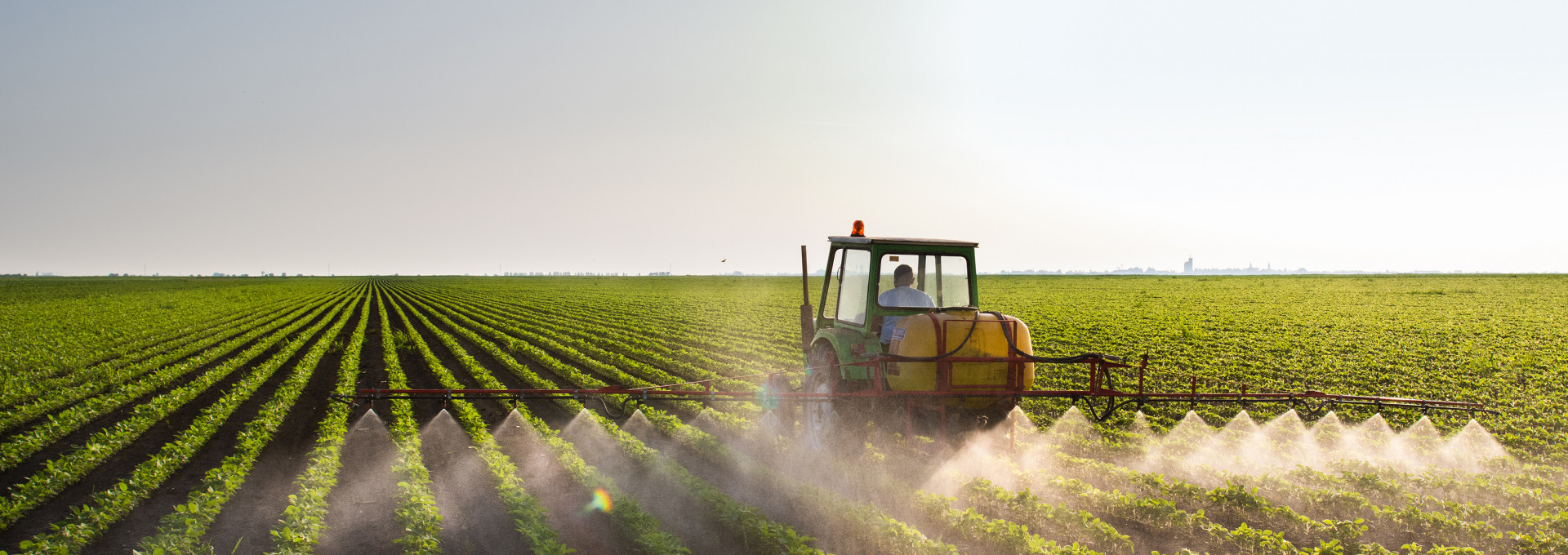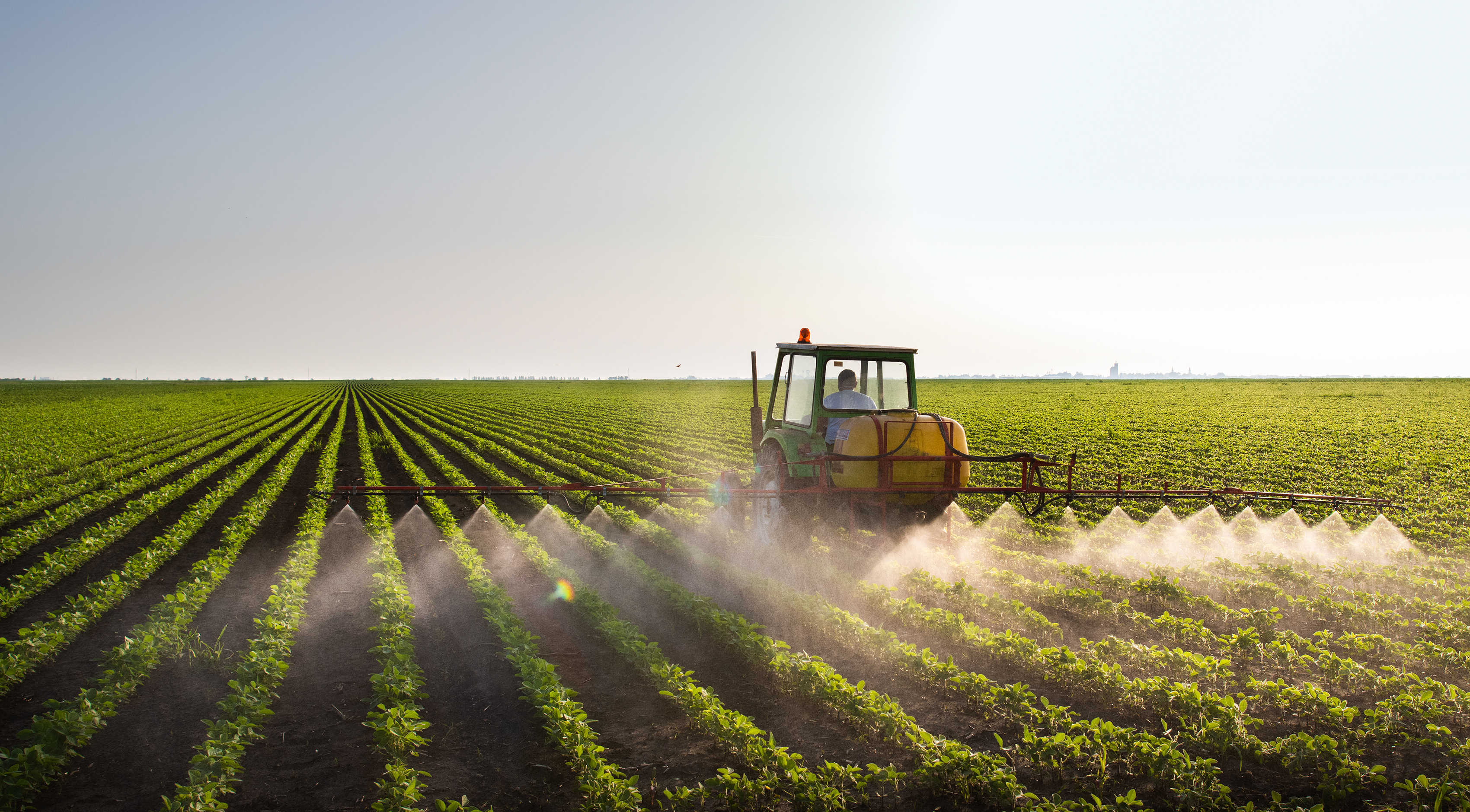



More and more pesticides are being used in agriculture worldwide. They cause massive environmental damage, endanger biodiversity, and harm human health. However, progress is being made in research on their impact and in the search for alternatives.
Pesticides are synthetic chemical substances that are poisonous for undesirable plants (herbicides), insects (insecticides) or fungi (fungicides). They are used in agriculture to reduce crop losses caused by harmful insects and weeds. However, scientific evidence shows that pesticide use has had devastating effects on biodiversity, soil and water quality, and human health.
In spite of such findings, more pesticides are used on fields every year around the world. According to data from the Food and Agriculture Organization of the United Nations, the amount of pesticides used rose by about 60 percent between 1990 and 2020. Global warming promotes the growth and proliferation of pests; as a result, even more pesticides are likely to be used in the future.
Pesticide use also has serious implications for climate change. Large amounts of energy are needed for the production and disposal of chemical pesticides and the purification of groundwater for drinking water. According to estimates published by the Intergovernmental Panel on Climate Change (IPCC) in its Climate Change and Land report, input production (fertilizers, pesticides and feed) and downstream processes (processing, storage, refrigeration and transport) account for approximately 5 to 10 percent of all anthropogenic greenhouse gas emissions.
Consequences for humanity and biodiversity
The list of negative effects of pesticide use is long. According to the 2022 Pesticide Atlas, a report on global pesticide use jointly published by the Heinrich Böll Foundation and Friends of the Earth Germany (BUND), traces of pesticides can be found not only in foods and beverages but also in the air, groundwater, grass on playgrounds, and even human urine. That is because instead of remaining on the fields, these poisons are transported over long distances by wind and water.
The 2022 Pesticide Atlas estimates that approximately 385 million people worldwide fall ill every year from pesticide poisoning, and as many as 11,000 die as a result. Scientific research also links pesticides to an increased risk of cancer, diabetes, asthma, allergies and endocrine disorders.
Biodiversity is also under serious threat from pesticides, which often harm useful organisms such as wild bees, butterflies and beetles. In 2017, the Krefeld Entomological Society showed that the total mass of flying insects in Germany had decreased by over 75 percent since the late 1980s. More than half of the wild bee species are threatened. Insects are not even safe in nature reserves, as shown by a study published in April 2023 by the Nature and Biodiversity Conservation Union (NABU).
Pesticides in water
Bodies of water are not spared either. According to measurements by the European Environment Agency, increased pesticide levels have been found in more than a fifth of Europe’s lakes and rivers. In 2018 and 2019, a group of researchers headed by the Helmholtz Centre for Environmental Research (UFZ) in Leipzig analyzed pesticide levels in more than 100 small rivers and streams in Germany. They found that the limits for pesticides were exceeded in over 80 percent of the watercourses, and the limits for more than 10 pesticides were simultaneously exceeded in 18 percent.
During their investigations, the scientists determined that samples taken from small streams immediately after rainfall showed up to a tenfold increase in pesticide levels. The researchers also showed that pesticides have an impact on invertebrates in small streams at much lower concentrations than previously assumed in pesticide approvals.
Infobox: The FLOW citizen science project
Reliable data on the ecological status and pesticide pollution of small bodies of water in Germany is incomplete. The FLOW citizen science project launched in 2020 aims to fill in the gaps with help from teams of volunteers.
During their third season of fieldwork from April to June 2023, the trained groups are examining a selected sampling location on a nearby stream. Working with the scientists, they analyze the streams and their physical and chemical properties such as nitrate, phosphate and oxygen concentration. They also survey the communities of invertebrates living in the streambeds. From the data they gather, they can draw direct conclusions about the streams’ ecological condition and pesticide levels.
The FLOW project is a joint effort of the German Centre for Integrative Biodiversity Research (iDiv), the Helmholtz Centre for Environmental Research (UFZ), and Friends of the Earth Germany (BUND). The project is funded by Germany’s Federal Ministry of Education and Research.
Looking for alternatives and solutions
Multiple studies show that there are already alternatives to pesticide use in agriculture. For example, organic farming uses no synthetic chemical pesticides and emits fewer greenhouse gases than conventional farming. In addition, conventional agriculture can promote the growth of beneficial organisms with mixed crops and wildflower strips, and control weeds by mechanical and thermal means. According to a study commissioned by BUND, such options can effectively replace pesticides.
Economic instruments such as subsidies and taxes can also encourage farmers to reduce their use of pesticides and increasingly switch to alternative crop protection methods. In 2021, UFZ scientists developed a pesticide tax plan that could cut in half the amount of pesticides sold in Germany, and thus the amount of land on which they are used. Such special taxes on pesticide use have proven effective in other EU countries such as Denmark and Sweden.